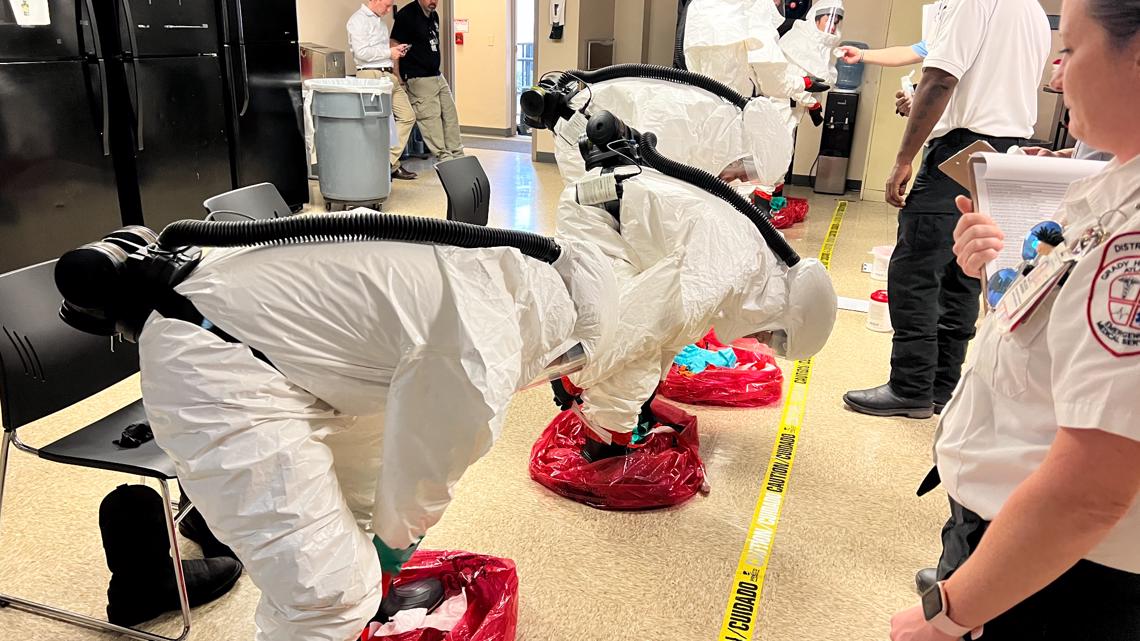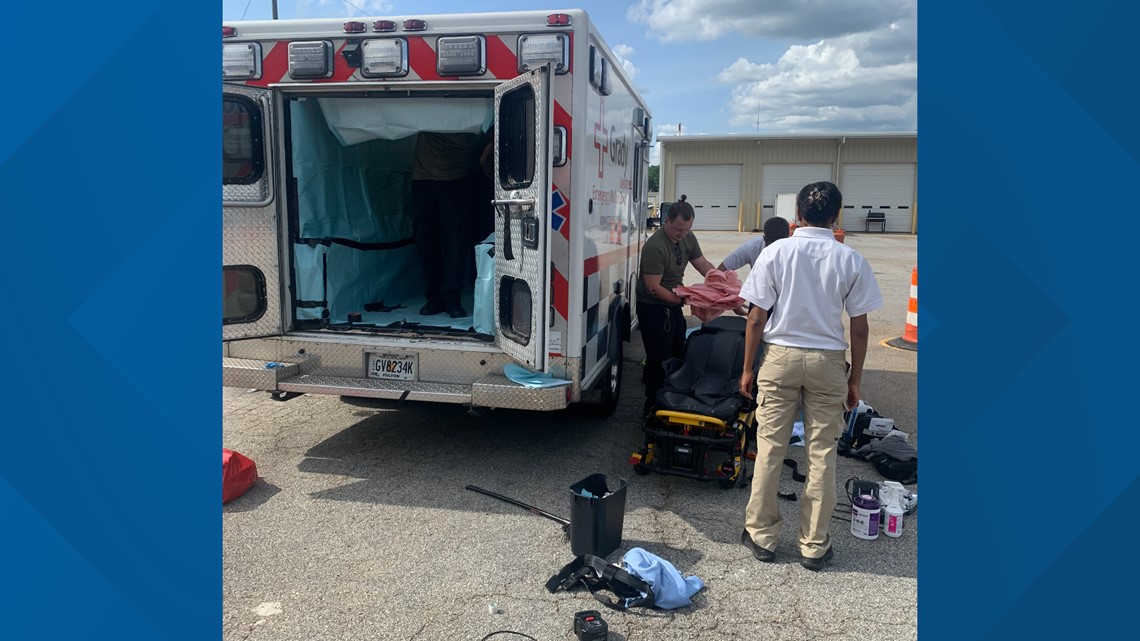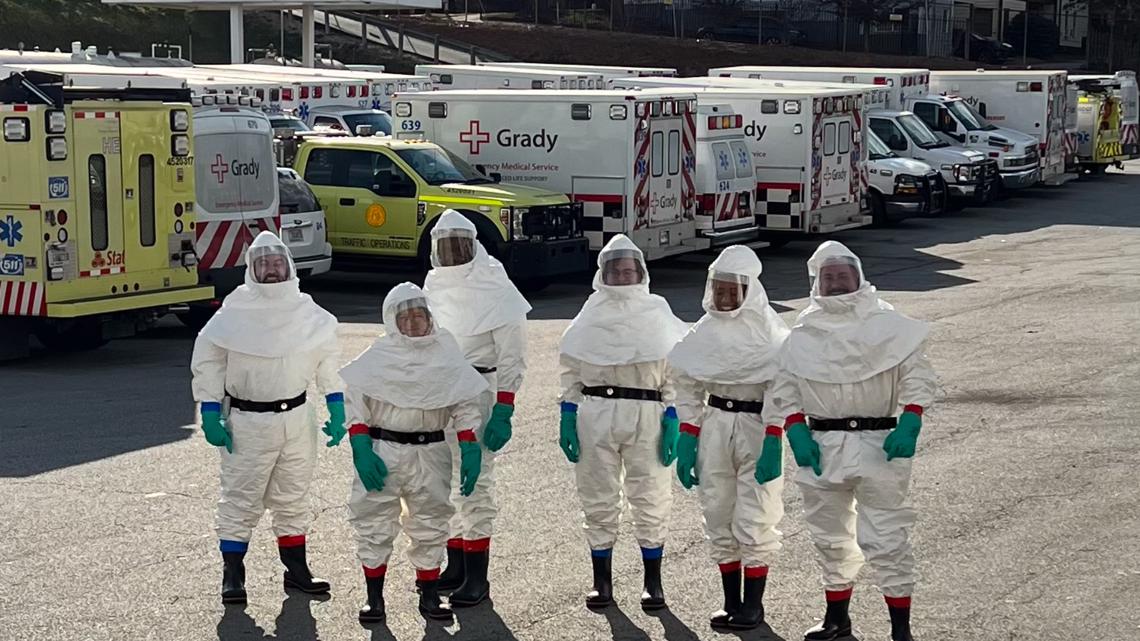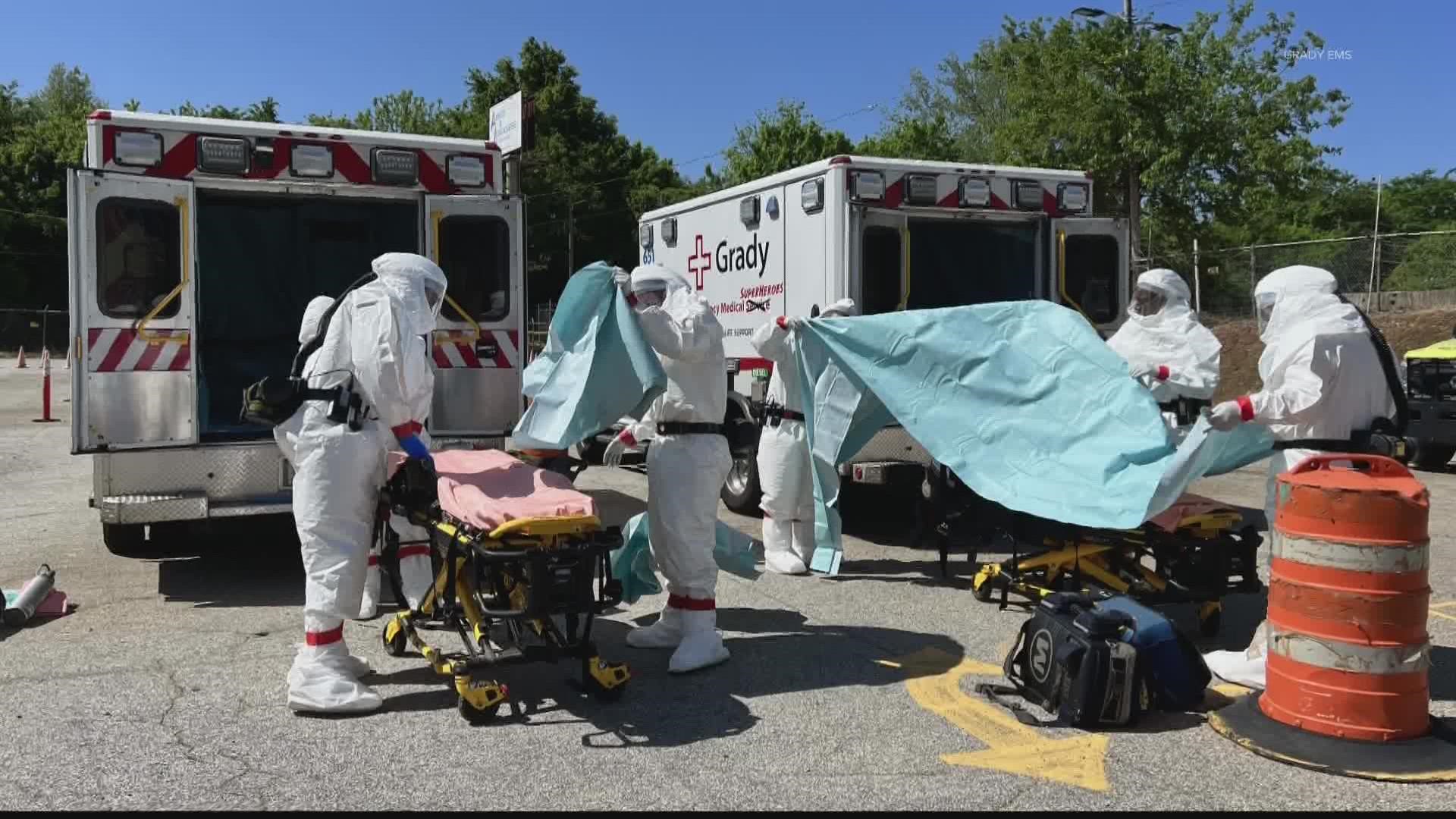ATLANTA — There's a team dedicated and ready to transport any future patients suspected of having monkeypox, and any other communicable disease here in Atlanta.
The Grady EMS Biosafety Transport Team has already safely transported one suspected case. As of Wednesday afternoon, there were 40 cases of monkeypox across the country, including one in metro Atlanta.
Team Lead Benjamin Mize and Medical Director Dr. Lekshmi Kumar expect to get more calls in the coming weeks.
"We got the call for activation from Emory University Hospital's Serious Communicable Diseases Unit. What happens then is they call us and give us a two hour window to activate the team, get the members here and get the teams set and in suit, get the truck ready," Mize explained. "From there, we respond to the location and make contact with the patient."
The photo below shows the gear trained team-members wore while transporting the most recent patient with suspected monkeypox.


The ambulances are protected, too, with blue tarps.
"What that entails is a draping system we put in, top to bottom, front to back, and it isolates all the germs and contaminants in the back of the truck," Mize added
The photo below was taken moments before six members – including technicians, a medical director, and Mize – responded on May 22. You can also see the tarp lined throughout the inside of the truck.


“We have a back up technician in case anything happens and the patient deteriorates," Mize added. "We go to the hospital and make contact, check the vital signs, we load the back of the truck and it’s our technicians and the patient in the back."
The team is made up of 15 members, who are on-call 24 hours, seven days a week.
"We hand select our team members. It's all current Grady paramedics," Mize explained. "Most of our team members have backgrounds in either critical care, hazardous materials, pediatric life support, advanced cardiac life support. We selected those team members, we put them through a multi day operations course and a technician level course. It gives them familiarity with infectious disease, transmission, the process, contamination, and a couple of days in the suit."
The team adds they are prepared to tackle the possibility of many more calls as monkeypox cases rise. They said they are also prepared for any other communicable disease.
"It’s one infectious disease after the other – the need will always be there and I think we will fulfill that," Dr. Kumar said.
Dr. Kumar also explained that although their team was first established 20 years ago, it wasn't until 2014 when they really began their missions. That year, the team became the first EMS agency to transport a patient with confirmed Ebola.
"We had a patient coming in with Ebola, which is a highly communicable disease with a high fatality rate. Those were the ones we have to be extra careful about. We don’t just want to put someone in danger by exposing them to it and that’s when we used the biosafety transport team for the first time," she said.
Dr. Kumar added that she went on about seven missions with Ebola patients. At the start of COVID-19, before learning more about the disease, they received calls, too.


“We were actually the first civilian team to stand up and the longest running since," Mize said.
Being located in Atlanta, the team is also conveniently close to the CDC and the busiest airport in the nation.
"You have 270,000 customers a day coming through there. The CDC is local, and a lot of times if there is Ebola, MERS, SARS. Atlanta will be the hub because we’re an easy international transport for them to bring in, especially if they’re going to Emory or the CDC," Mize explained.
"A lot of CDC employees themselves – its not just people coming in but employees – get sent on missions across the world and sometimes they are exposed and they have to come back to the United States, get care, get tested, and its really important," Dr. Kumar added.
Both she and Mize said their team of 15 might expand as demand grows, and more infectious diseases come to light.

